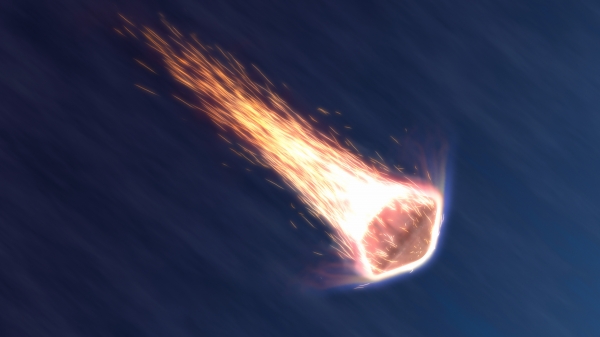This September, after traveling billions of miles through our solar system, NASA’s OSIRIS-REx spacecraft will cruise past Earth with an extraordinary delivery. As it passes, it will release a mini-fridge size capsule containing a sample of primordial space rock collected from an asteroid located between the orbits of Earth and Mars.
OSIRIS-REx — the Origins, Spectral Interpretation, Resource Identification, and Security–Regolith Explorer — is the first U.S. mission to collect a sample from an asteroid. Scientists hope the pristine material it collected from asteroid Bennu in 2020 — about half a pound of rubble and dust from the asteroid’s surface — will provide a window into 4.5 billion years ago when the Sun and planets were forming.
Before it can do that, the sample’s protective capsule will withstand temperatures twice as hot as lava, and the second-fastest velocity ever achieved by a human-made object entering Earth’s atmosphere. After entering Earth’s atmosphere at around 36 times the speed of sound, the capsule may eventually encounter wind, rain, and other weather conditions as it drops closer to the surface. Regardless of weather, it will land in the Great Salt Lake Desert, an arid landscape known for its scorching summer temperatures and its salt flats, the remnants of an ancient lakebed where crusty salt deposits coat the ground.
Read more at NASA
Image: The sample return capsule experiences maximum heating in Earth’s atmosphere. (Credit: NASA’s Goddard Space Flight Center/CI Lab)


